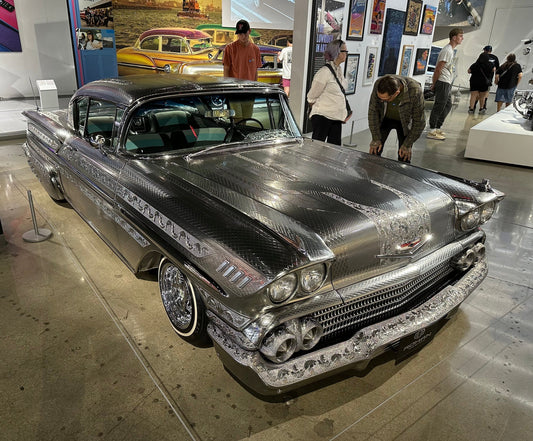Finally. After months of work, lots of thinking, tinkering, designing, and building, I was ready to see if this crazy idea of turning an 1,800 watt (capable) power amplifier into an AC power generator would work. And, if it did work, what would the results be?
If you'll recall, the knowledge that passive power conditioners only make matters worse, followed by the realization that the core of the problem was actually the wires in the home themselves—coupled with the sharing of the AC power by everyone connected to the same power grid—and that the only solution was either my impractical electro-mechanical generator or its electronic equivalent, the fate of our new company rested soley on the outcome of this next experiment.
There were no other choices down this long and winding road. If this did not work, a total reset and direction change would be needed.
My great and bold idea to build an electronic version of a power generating station that is living room friendly, solves all the problems inherent in our home's electrical grid, dramatically improves measured and audible performance levels of a High-End audio system, and worth investing time and money in was the right thing to be doing at the time, but would only matter to our world if it works.*
*The list of great and bold ideas where people have invested their lives in futile attempts at solving problems is long: perpetual motion, 100 MPG carburetors, Space Fountains, The Chronovisor, Cold Fusion, and on. Still, without these efforts at what seems crazy or impossible we would never stretch our imagination far enough to make strides into the unknown. Sometimes, these work—mostly, they do not. Regardless of the outcome of this experiment, I would not have changed a thing on this perilous gamble I was on.
I got it all working. On the test bench, at least. The real test would have to take place on an actual high-end audio stereo system.
With PS Audio, 4 teenage boys and a crazy howling beagle named Snoopy filling our home, there was no room for a stereo system.*
*At the time, there was no PS Audio physical presence anywhere except our home in Vail, Colorado. I had converted part of our garage into my lab (challenging in that "sort of" heated environment when mountain temperature dropped below zero) and Terri had turned a corner of our living room into her accounting office though the only thing to account for was a growing stack of debt.
Our dear friend and attorney (and eventually the first president of the new PS Audio), Peter Rudy, had a stereo system. And a really sweet one at that. A beautiful pair of Genesis II loudspeakers (a smaller 4-piece system mirroring the Infinity IRS) sat in his Vail living room, along with a collection of Sonic Frontiers, CJ, and Audio research electronics. Peter, ever the tinkerer and adventurer was ready, willing, and eager to give this new fangled contraption a try.*
*An unusual combination for an audiophile because most people I know with this much invested in a system would run away screaming at the thought of connecting an untried contraption like this to their equipment. The likelihood of this 1,800 watt power amplifier going DC or oscillating or simply rising up to the ceiling in a cloud of acrid blue smoke was high. And likely.
The experiment would be built like this: my cobbled together power amplifier that, at its output, could produce a whopping 120 volts rms, and had enough grunt available to power on equipment (good to remember that on turn on, our equipment quickly sucks enormous amounts of current to get up and running—known in engineering circles as "in-rush" current), fed at its input by my big HP vacuum tube bench oscillator.
Peter agreed to go for the gusto. Throw caution to the wind and power on the entire system, from preamp to power amp and source. All of it. Let's just fricking go for it!
Came the big moment and I winced before flipping the switch that would power on (or blow up) the system.










